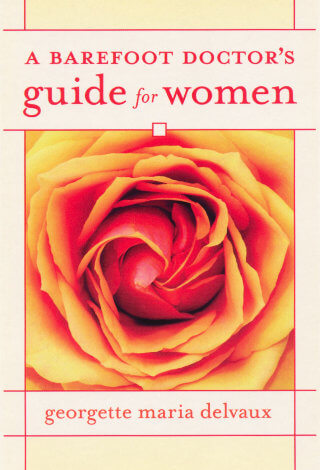A Barefoot Doctor’s Guide for Women
In A Barefoot Doctor’s Guide for Women, Georgette Delvaux, DC, focuses on hormonal health, explaining in a conversational tone how issues related to menstruation, pre-menopause, and menopause can begin as mere annoyances and gradually develop into major problems that affect both body and mind. She describes the harmful late effects of treating hormonal imbalances with artificial hormones—a popular practice—and introduces Thermography, the exciting but still little-known method of detecting dangerous changes in breast tissue. With spirit and intelligence, Dr. Delvaux takes on these and other often-taboo topics, encourages women to trust subtle changes in their own sensations, and helps them understand both alternative and conventional medicine.
A Few of the Reviews
This little book, written in a deceptively simple language, is chock full of intelligence, wit, and wisdom about our bodies and how we inhabit them. What strikes me most, as a physician, is how simply Madame Delvaux renders the distinction between common sense and esoteric knowledge meaningless. Most irritatingly, she seems to know all sorts of things that those of us who spend our lives practicing medicine never quite seem to get around to understanding.
- San Francisco Board Certified Psychiatrist
- Board Certified Neurologist
- Honorary Member, The French Society of Perfumers
If you have been lulled into complacency about your health, Georgette Delvaux is the loving provocateur to break your trance. Her sage and slightly naughty voice will suffuse your thinking, make you laugh, and guide you into action. Then you’ll give this book to the women you love.
While written as a medical tour guide for women, reading Georgette Delvaux’s book transformed my attitude toward the female body. Along with awe toward its inestimable power to seduce and reproduce, I now see a central place for gentleness, kindness, and care toward its natural vulnerability.
